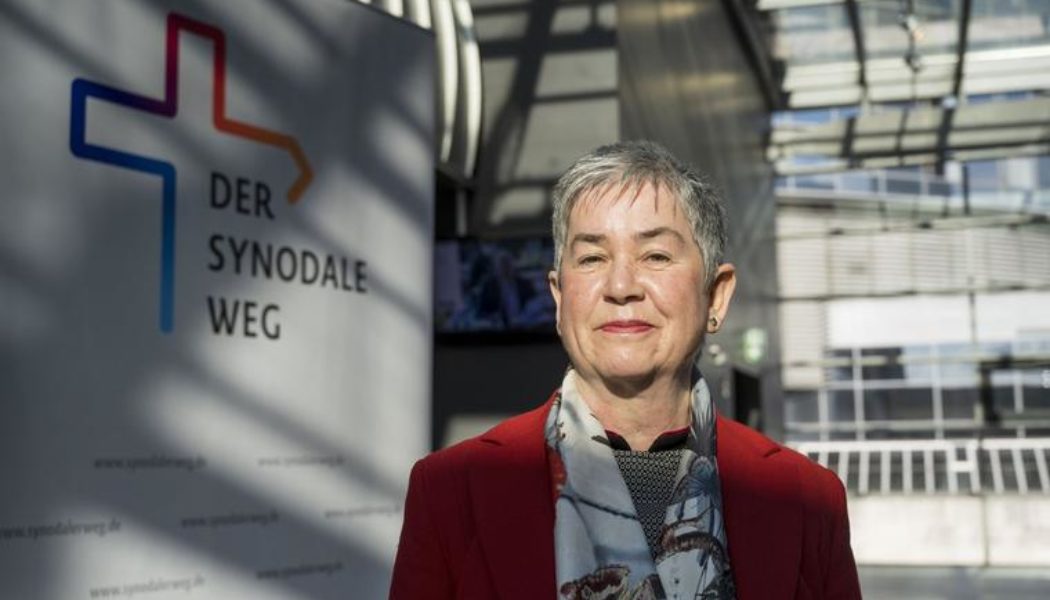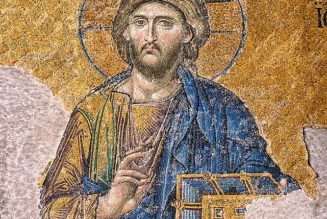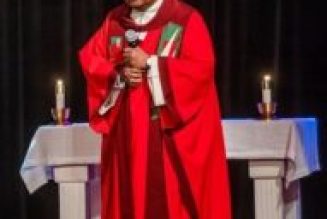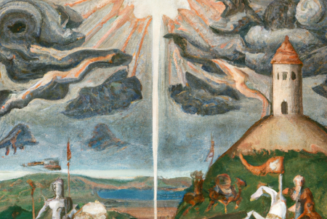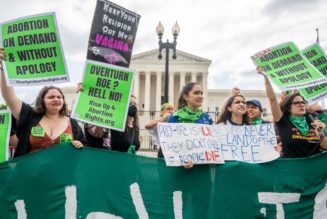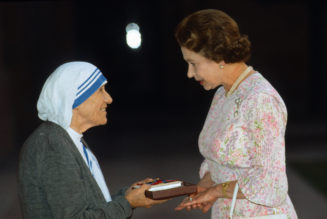
The Central Committee of German Catholics (ZdK) has announced that it will not accept the ability of the German bishops to veto resolutions in the upcoming “Synodal Committee” with more than one-third opposition.
The position was conveyed by ZdK president Irme Stetter-Karp, who made her remarks during the lay group’s ongoing plenary assembly in Munich, reported by Katolisch.de, the official website of the Catholic Church in Germany.
But should the demand be considered a power move by the formidable lay organization, an indication of confidence and an attempt to further undermine the significance of episcopal governance? Or is it the move of a group with its back against the wall, desperately trying to force compliance or at least save face in the case of failure? And what does it say about the status and likely outcome of the entire synodal project?
A Change Without a Clear Rationale
Removing the bishops’ veto power would be a significant change from the governing procedures of the Synodal Way assemblies that took place over the past three years, which resulted in the passage of several controversial resolutions that deviate from established Church teaching.
One of those controversial measures was the establishment of the Synodal Committee, a transitional body tasked with laying the groundwork for a permanent synodal council — responsible for governing the Catholic Church in Germany, made up equally of bishops and laypeople and capable of overriding an ordinary’s decisions in his own diocese. The Vatican has explicitly forbidden the establishment of a synodal council as fundamentally inconsistent with Catholic ecclesiology.
The Synodal Committee — whose membership is comprised of Germany’s 27 episcopal ordinaries, 27 lay delegates from the ZdK, and 20 “at large” delegates elected at the March 2023 assembly — is set to begin its work in November.
Stetter-Karp said ZdK’s position that affirmation of decisions no longer be linked with two-thirds approval of the German bishops is the product of a “painful learning experience” from the Synodal Way assemblies. The ZdK president was likely referring to the defeat of a “base text” on human sexuality at the September 2022 assembly, after 21 of 57 voting bishops opposed it.
But the rationale for the demand is not entirely clear, especially considering that Synodal Way organizers seemed to have neutralized the threat of a bishops’ veto already.
Following the September failure of the sexuality base text, organizers changed procedural rules to effectively remove private voting at the March assembly, a measure that critics said would alter the voting behavior of the bishops, exposing them to criticism and obstruction from Church media and diocesan structures, which are mostly staffed by pro-synodal laity, as well as coercion from the Synod Way backing leadership of the German Bishops’ Conference.
With secret ballots eliminated, the number of bishops who opposed the “implementation texts” on same-sex blessings and gender theory in March dropped from the 21 who had opposed the sexuality base text in September to nine and seven, respectively.
While the German episcopacy’s participation in the Synodal Committee will look different than it did in Synodal Way assemblies — down from about 60 ordinaries and auxiliaries to just the 27 bishops who lead dioceses — based off the voting from March, it isn’t evident that a veto is more likely to transpire in the smaller setting.
For instance, only three ordinaries opposed the implementation text related to gender theory, while just four voted “nein” on the same-sex blessings resolution. During the Synodal Committee, 10 ordinaries would need to oppose a measure to achieve the “more than one-third” threshold.
Furthermore, ZdK’s refusal to accept a bishops’ veto in the next phase of the synodal process comes at a time when at least two German bishops, notably Bishop Rudolf Voderholzer of Regensburg and Bishop Stefan Oster of Passau, have openly questioned whether or not they will participate in the committee. The latest development seems likely to deepen that questioning and even give more bishops pause for concern — so why did ZdK make it?
A Sign of Strength?
One possible interpretation is that ZdK leadership believes it’s in such a position of strength vis-à-vis the German bishops, they can do whatever they want, while the bishops have no choice but to accept the consequences.
If this is the case, then eliminating the bishops’ veto power wouldn’t be a matter of practical necessity — because ZdK wouldn’t need to take such a step to ensure non-resistance during the Synodal Committee. Instead, it would be about driving home the claim that the successors of the apostles have no essentially special role to play in Church governance, an animating theme of much of the Synodal Way assemblies’ discussion and resolutions.
True, the demand would likely compel bishops like Bishops Oster and Voderholzer to go through with opting out of participation. But if a significant minority of German bishops were unwilling to oppose controversial resolutions at the March assembly when anonymity was removed out of fear of reprisal, the ZdK may have no reason to expect significant defections from the Synodal Committee by removing the veto.
According to this scenario, the vast majority of bishops will still participate, while the handful that opt out will be criticized vociferously as anti-synodal, and the synodal project as a whole will not be significantly delegitimized in the eyes of most German Catholics.
Or of Weakness?
But another possible interpretation is that, reading the writing on the wall of increasing Vatican resistance to the Synodal Way, the ZdK’s “no veto” demand is a sign of desperation, an attempt to head off a likely increase in episcopal opposition, or to even save face in the likely event of failure.
Although it’s true that the vast majority of ordinaries didn’t oppose resolutions at the March assembly, the Synodal Committee will inevitably address a topic that the final assembly decided to punt on: establishing the permanent synodal council. In fact, the creation of the Synodal Committee was seen as a way to continue down the path toward a potential synodal council without crossing the Vatican’s line and forcing the German episcopacy into a showdown with Rome and was championed as a pragmatic move by the likes of Cardinal Reinhard Marx of Munich.
Given the red line drawn by the Vatican on this issue in particular, establishing a Synodal Council is the measure that the German bishops are more likely to oppose than any other. The ZdK’s attempt to prevent a bishops’ veto can be read as fear that they don’t believe they have two-thirds of the ordinaries on board with pushing forward.
In this scenario, the move to eliminate the bishops’ veto power may, in fact, prompt a significant number of German bishops to opt out of the Synodal Committee. But if the ZdK feels that the Synodal Council doesn’t have a viable path forward anyway, then the organization might see such a development as the best-case scenario, as it will allow them to point to the German bishops as a convenient scapegoat for the synodal project’s ultimate failure — preserving the ZdK’s leverage over the bishops in whatever would come next.
Bishops Delegitimized but Needed
Either way, ZdK’s demand that the bishops’ veto is eliminated from the Synodal Committee highlights the strange paradox of episcopal involvement in the entire process. On the one hand, the episcopal office is widely disregarded as having any special significance in essence. On the other hand, ZdK leadership is aware that they can’t achieve the reforms they want without the bishops’ compliance.
In effect, the bishops are treated as holdovers from an antiquated, unjust system, who nonetheless currently hold important bureaucratic power. Stetter-Karp said as much when she demanded at the ZdK’s plenary meeting that the German bishops implement the resolutions of the Synodal Way in their respective German dioceses given that the measures have no standing in Church law without an ordinary’s enforcing them.
The ZdK wants to essentially eliminate the traditional episcopacy as established by Christ, but needs the bishops’ compliance to do so. Their latest demand, however, raises questions of whether they actually have the bishops’ buy-in to do so — especially with the Vatican’s emphatic opposition to the synodal council looming in the background.
